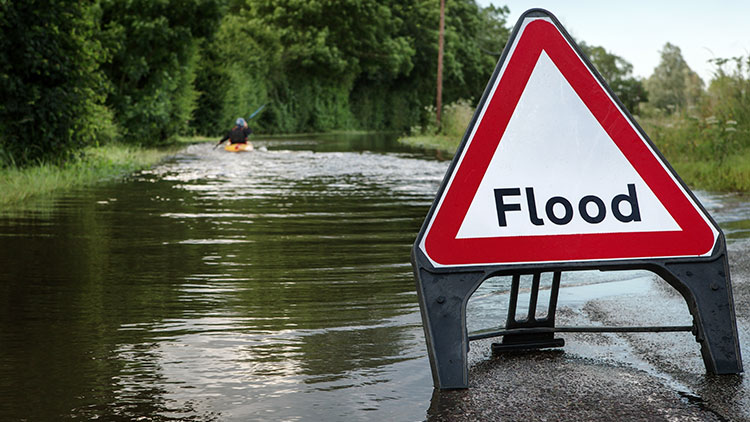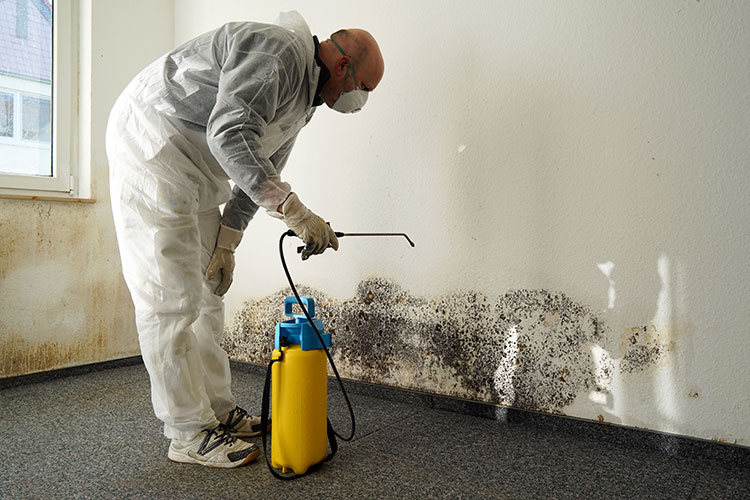After the devastating flooding events we witnessed here in New Zealand, many people will be returning home to damp, mouldy houses, and while it’s natural to think opening the house up to air it out will help, surprisingly, this is not the advice that professionals give…
Horror for any home-owner
Floods are one of the most devastating natural disasters that can occur, causing significant damage to homes, businesses, and communities.
Whether they’re caused by heavy rainfall, coastal storms or some man-made disaster, cleaning up after a flood event is essential, but the process can be daunting, time-consuming, emotional and challenging.
Flood waters can carry all sorts of pollutants, including sewage, chemicals, and debris. The clean-up process can be arduous, so it’s important to understand the potential health risks and take the necessary precautions.
Surprisingly, air conditioning can be a crucial tool in the clean-up process after a flood.
Let air conditioning do its job
On a hot day, there’s no point having the air-con on if the windows are open, and the same is true post-floodwater.
Although it may be counter-intuitive, if you have air conditioning, close all doors and windows and let the unit run. Air conditioning can help to control the temperature and humidity levels in a room, hastening the drying and dehumidification process.
This can be especially helpful in preventing the growth of mould, which can be a significant health hazard. Mould thrives in damp and humid environments, and so the days after a flood are when mould is at its most dangerous.
By reducing the humidity levels with an air conditioning unit, you can help prevent the growth of mould and protect the health of those involved in the clean-up process.
Improve the air quality
Additionally, air conditioning can help to filter and purify the air, removing any harmful contaminants and improving the overall air quality in the home.
Floodwaters can bring with them a host of contaminants, including bacteria, viruses, and other harmful substances. These contaminants can remain in the air long after the waters recede, making it difficult to breathe and posing a serious health risk.
By using air conditioning to filter the air, you can help remove these contaminants and improve the air quality in your home, making it safer and more comfortable to work in the affected areas.
Post-flood bugs
Unfortunately, even after the water recedes, some might say the worst is yet to come.
According to pest experts, the calm after hot, stormy weather provides ideal breeding conditions for flies, mosquitoes, ants and cockroaches.
Again, keeping your doors and windows shut is the easiest way to keep them out, but it’s the dampness and humidity that draws them in the first place. Get that air-con going and dry the place out as soon as possible to prevent bugs from setting up shop in your living room.
Let us help you with your air conditioning
Air conditioning can play an important role in the clean-up process after a flood, helping to dehumidify and dry out flooded areas quickly and effectively.
By reducing humidity levels, improving air quality, and speeding up the drying process, a good air conditioning unit can help make the long, difficult clean-up process safer, more efficient, and more effective.
It’s important to know what type and size of air-conditioning unit to use for the job – an undersized unit may not be able to effectively dry out the space, while an oversized unit can waste energy and may not remove moisture from the air as efficiently.
It’s also important to properly position the air conditioning unit in the flooded area. The unit should be placed in a central location with good airflow, and any obstructions should be removed to allow for proper air circulation. If possible, multiple air conditioning units should be used to ensure even drying throughout the space.
Finally, it’s important to monitor the drying progress using a moisture meter or other appropriate tool. This will allow you to track the moisture levels in the space and adjust the air conditioning settings as needed to achieve the desired level of dryness.
If you have any questions about air conditioning units or would like advice on how they can help repair the damage from flooding, please don’t hesitate to contact us today and one of our friendly staff members will be happy to have a chat.








